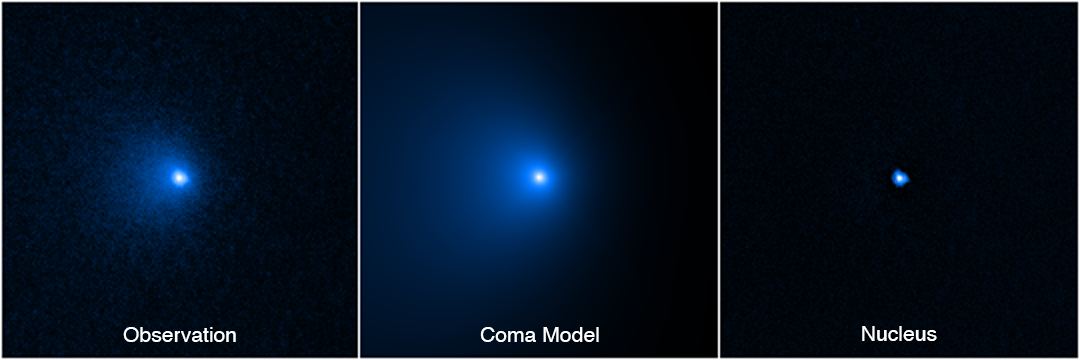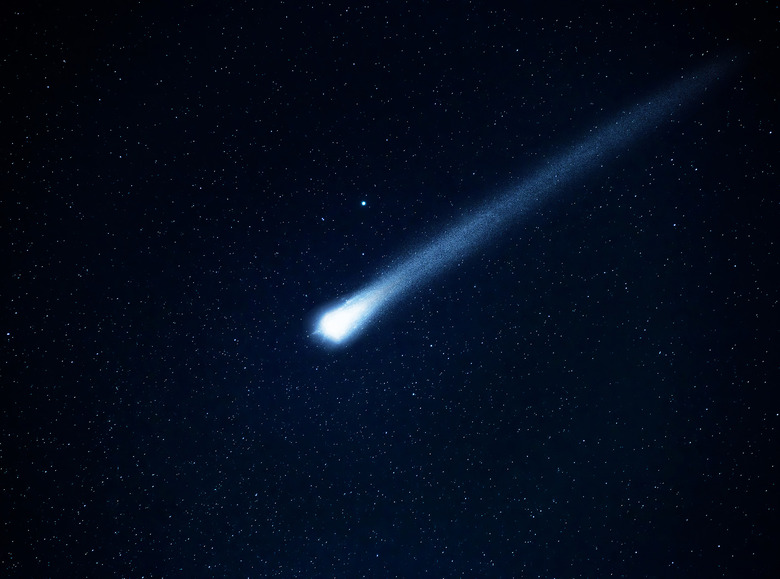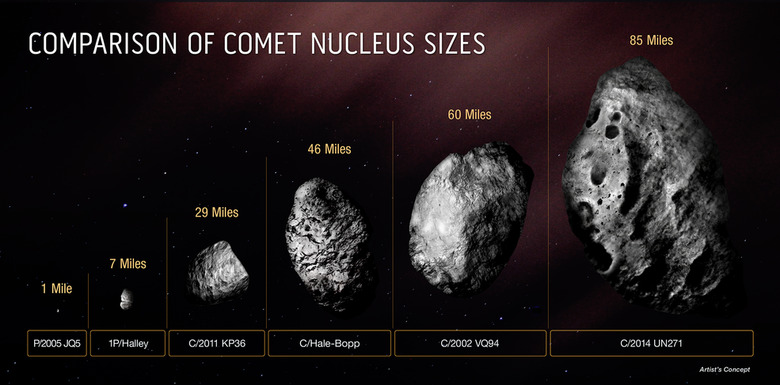A 4 Billion-Year-Old Comet 80 Miles Wide Is Headed Toward Earth
An ancient comet, believed to be over 4 billion years old is headed towards the Earth. The massive comet is at least 80 miles across, making it twice the width of Rhode Island. It's currently speeding towards the Earth at 22,000 miles per hour.
This ancient comet is the largest ever discovered
The comet in question is currently traveling toward Earth at 22,000 miles per hour. It's hurtling inward from the edge of our solar system. Luckily, we won't have to worry about the comet impacting the Earth. Astronomers say it will never pass closer than 1 billion miles from the Sun. That's a little farther than the distance between the Earth and Saturn.
The ancient comet is expected to pass that close to the Earth sometime in 2031. That means we have a number of years before we even need to concern ourselves with this ancient celestial object. Still, it is always interesting to see when comets and asteroids are headed in our direction.
David Jewitt, a professor of planetary science and astronomy at UCLA co-authored a study on the comet. Jewitt and his fellow authors published the study in Astrophysical Journal Letters. He says that objects like this ancient comet were "evicted" from the solar system ages ago.
Jewitt says the comets then took up residence in the Oort Cloud, which is a massive gathering of far-flung comets that encircle our solar system. Other comets like this ancient comet then orbit the solar system billions of miles into deep space.
Meet Comet C/2014 UN271
On top of making its way towards the Earth, there's something else that makes this ancient comet so intriguing. For one, astronomers say that this comet has the largest nucleus of any comet we've seen thus far. They determined the size of the nucleus using NASA's Hubble Space Telescope. They currently estimate the comet is as large as 85 miles across.
Comet C/2014 UN271 was first discovered by Pedro Bernardinelli and Gary Bernstein. The astronomers first observed it in 2010. At that time, the ancient comet was 3 billion miles from the Sun. Now, it is less than 2 billion miles from the Sun. Jewitt says that it will continue its current loop until it eventually returns to the Oort Cloud in a few million years.
Jewitt says that this ancient comet is "big and blacker than coal." The team estimates that the comet is roughly 500 trillion tons. That's a hundred thousand times greater than the mass of a typical comet found closer to the Sun.
Of course, this isn't the first extraordinary comet astronomers have discovered. Previously, NASA observed this comet and its brilliant aura. Astronomers also previously discovered a comet in a place they'd never seen one before.

"This comet is literally the tip of the iceberg for many thousands of comets that are too faint to see in the more distant parts of the solar system," said David Jewitt, a professor of planetary science and astronomy at the University of California, Los Angeles (UCLA), and co-author of the new study in The Astrophysical Journal Letters. "We've always suspected this comet had to be big because it is so bright at such a large distance. Now we confirm it is."

